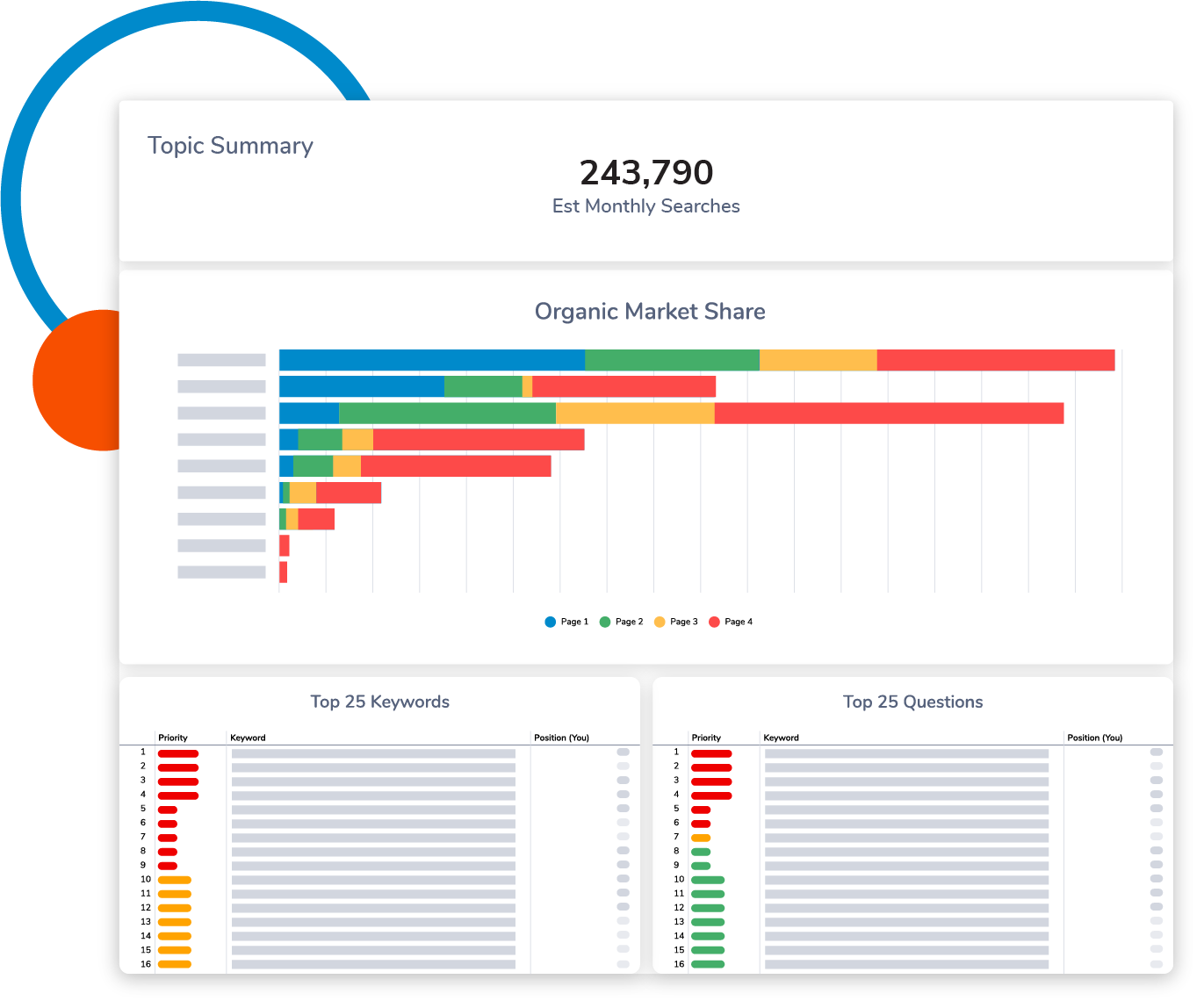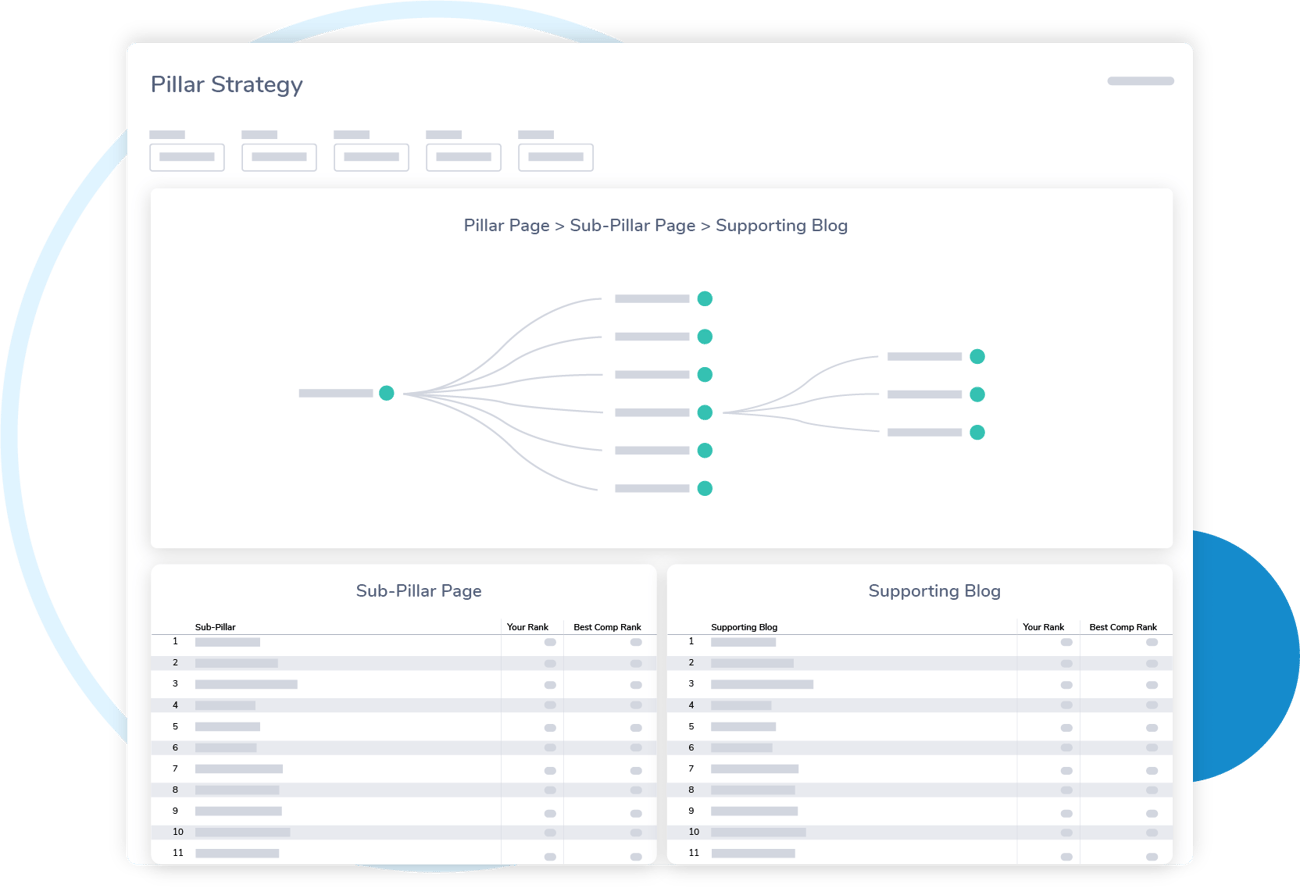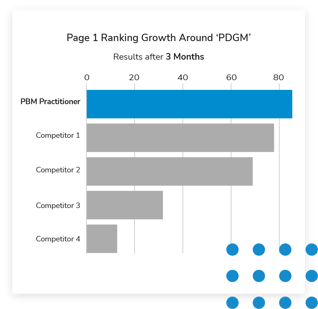While Google keeps us on our toes with the algorithm updates, one thing has remained a must-do for content marketers looking to optimize their websites for search: SEO keyword research.
Although the need to do SEO keyword research has stayed the same, how you actually do it hasn't. There are many keyword research tools out there today that allow you to try to pinpoint exactly what your target audience is searching.
By researching keywords to understand their popularity, search volume, and general intent, you can tackle the questions that most people in your audience want answers to. But many might be asking “Which tool is best for keyword research?” and “What do keyword research tools provide information about?”
Let’s dive into the conversation of SEO keyword research tools: what they are, how they work, and which ones are the best.
What Is Keyword Research in SEO?
Keyword research is a practice search engine optimization (SEO) professionals use to find and research search terms that users enter into search engines when looking for products, services, or general information.
Keywords are related to key questions, which are asked by users in search engines.
Learning how to do keyword research is a fundamental SEO task that involves identifying popular words and phrases people enter into search engines. When you know what people search for, you can focus content around those topics.
Researching keywords gives marketers a better understanding of how high the demand is for certain keywords and how hard it would be to compete for those terms in the organic search results, offering some direction to optimization efforts.

Why Keyword Research Is Done in SEO
Keyword research isn't just about verifying how many searches a particular keyword has—it's also about exploring the many varied ways that people use language to research an idea or topic. As such, researching popular keywords isn't just a big part of search engine optimization, it's also a major element of content marketing as a whole. Why?
Because it can help you find ideas for your next blog post, learn more about the needs of your audience, and keep up to date with the lingo of the ever-changing search landscape.
Ultimately, by researching the words people type into search engines and using this research to create targeted content, you can drive the right traffic to your site—traffic that is more likely to convert and engage with your brand.
How Do I Generate Keywords for SEO?
All keyword research starts with a topic, idea, or general concept. This topic, idea, or concept—typically one or two words and is what will act as the foundation for your content—is called a short-tail keyword.
This short-tail keyword can come from your industry knowledge, from being an active member in related online forums and groups, or from the products and services you provide.
For example, for a content marketing firm, a short tail keyword could be “Content Marketing.” For an outsourced accounting and HR company, a short tail keyword could be “Outsourced Accounting” and/or “Outsourced HR.” Brands that have multiple facets can have more than one short-tail keyword.
Make sure you have a spreadsheet or notepad where you can jot these terms down as you discover variations on those keywords.
Once you've got a good list, you'll want to determine how popular each keyword is and how difficult it would be to rank for them on search engine results pages (SERPs). This is where a keyword research tool comes in.
Start by entering a short-tail keyword into a research tool. You'll be presented with details on how popular the search is and how difficult it is to rank well for that keyword.
Short-tail keyword terms don't just lead to metrics like search volume; they also open the door to the bounty of related long-tail keywords and key questions suggestions that you may not have thought of yet. You can see how a simple keyword can grow into a useful tree of keywords brimming with ideas for your pages or next blog post.
For example, a beverage company can start out with the term “bottled water” and with the right tools, find out the key question “What is the best alkaline bottled water?” and “water purification strategies” are high trafficked keywords and key questions. They can then use these keywords as their next blog post topic.
How Often Should I Do Keyword Research?
Keyword research isn't just a one-off task. Your website's foundation is built on keywords, so precisely what building blocks you use require regular re-evaluation and maintenance.
Search language shifts constantly, new keywords are being formed all the time, and your audience's needs develop and grow. As a result, keyword research is a job worth doing whenever you're looking to create new website content. This includes when you're looking at starting a new website, writing a new blog post for an existing site, or when you're deciding whether to promote a particular product or service. It's also rather handy if you're restructuring your existing site and consolidating your content.

Your website content should serve to fulfill the needs of your audience. By regularly assessing the ways in which people search, and by identifying not just the most popular searches but also the specific and ever-changing ways that people search for content within your niche of the internet, you can continue to create content your audience will enjoy and share.
What Do Keyword Research Tools Provide Information About?
Keyword research tools let you track many different metrics and find hard data. This hard data can be used in a variety of ways—whether it’s for specific keyword usage in a single written piece of content, creating a blog post, or for something more broad like strategizing an editorial calendar.
Unsurprisingly, these metrics come with some pretty complex lingo. In general, though, keyword research is used to find information on the following areas:
Average Monthly Searches
As you may have guessed from the name, this metric indicates how many searches were performed for a specific keyword over the course of a month. This stat gives you an idea of how much can be gained from trying to rank high on a Google search page.
Competition
This data point provides insight into how many other brands are paying to serve ads when users search for a given keyword. The higher the competition, the more your competitors find value in that phrase.
Top of Page Bid Range
Provides a range of how much marketers are paying per click for paid search rankings. If competition gives you an idea of how many brands are interested in a keyword phrase, this metric tells you how much they’re spending on it.
Although these metrics are intended primarily for advertisers, they can actually be used for marketers that are focusing on organic clicks. SEO marketing is mostly organic and does not require pay-per-click campaigns. It does mean, though, that the marketers responsible for the keyword research will be doing some heavy lifting.
The metrics provided by keyword research tools can be used for insights into consumer habits, but it’s really about choosing the right keywords and crafting written content that makes the most of these phrases.
What Is the Best Free Keyword Research Tool for SEO?
Can you find keyword ideas using free tools? The answer: ‘Of course!” You can find keyword ideas for any topic or question using the free tools out there.
There are many tools out there that give you keyword research for free, like Google Keyword Planner, Answer The Public, Google Trends, or Wordstream.
Keep in mind that, as with most things, you get what you pay for. Many of the free keyword research tools have limited capabilities or unsophisticated results.
These free tools can give you a general idea and can be a good place to start, but may not have the long-term toolset needed in order to keep improving your long-term SEO keyword strategy.
Google Keyword Planner
Google Keyword Planner is a free feature within Google Ads. It is a keyword generator helping you with bid estimates for planning your marketing strategy. This keyword tool is specifically focused on Google Ads, so there may be some limitations to this tool if you are writing general content, not ads.
Google Trends
Google Trends will help you to see the popularity of the phrases, compare different phrases, and provide data on regional variations. This tool is especially helpful if you already know the keywords you want to use.
Google Trends is a great way to evaluate seasonality and how keywords change in value over time. This is particularly useful for short-term fresh keywords that may expire quickly. You can make sure that the keywords you utilize are still valuable and relevant.
Answer The Public
Answer The Public is a free keyword tool that uses autocomplete data from search engines to give you useful phrases and questions around a keyword that you enter. This gives you a great look into what customers are actually searching for regarding a specific topic.
WordStream
WordStream is a free keyword tool that helps you discover and export keywords and performance data to help you with Google Ads and Bing Ads. This tool can inspire ideas for new keywords and show what kind of search volume they have.
Which Tool Is Best for Keyword Research?
There are so many keyword research tools out there, which ones are the best? A strong SEO keyword research tool has multiple elements that can provide you with the important information necessary to not just write better content, but show fantastic results. Here are a few ways that the best keyword research tools can help your content marketing efforts:

Win Clients In a Crowded Market
Good SEO research tools help you stand out from your competitors and win more new business with their insights. A good keyword research tool allows you to:
- Win business by bringing clients and prospects industry insights they didn't know they could get.
- Power your pitch with competitive trends and unique audience behavior insights.
- Know your prospect's market share, performance, and gaps before you even meet with them.

Write Faster and Rank Better
The best SEO tools give you the information you need to create website and blog content that ranks on the first page—and save time doing it. Knowing exactly what content to create and keywords to include to ensure it ranks fast. Find a keyword research tool that has:
- Prioritized lists of content to create around any topic.
- SEO-friendly content outlines for any search query with one click.
- Content strategy with site architecture and pillar strategy execution in mind, taking the guesswork out of how to structure content.

Prove Results and Optimize
Find a keyword research tool that eliminates the time suck and by having an automated attribution dashboard. Know with certainty which marketing efforts are driving ROI and value. Find a keyword research tool where you can:
- Clearly see which campaigns are driving revenue.
- Show which pieces of content drive the pipeline.
- Understand the search terms and keywords that lead to sales.
DemandJump: the Best Keyword Research Tool
Our instant SEO keyword research helps you save time for each piece of content that you write. No more wasting hours jumping from one tool to another to try to decipher the right keywords to use.
DemandJump also helps you understand consumer behavior and shows you which keywords and questions matter the most at each stage of the customer journey.
Writing content is one thing, but getting that content in front of others is a whole other ballgame. DemandJump’s one-click content briefs give you the structure and confidence you need to create content that contains the keywords that will get your content to the top of the search engine results.
Get started with a free trial today (no credit card necessary) and discover how DemandJump can help you create content that ranks—fast!












